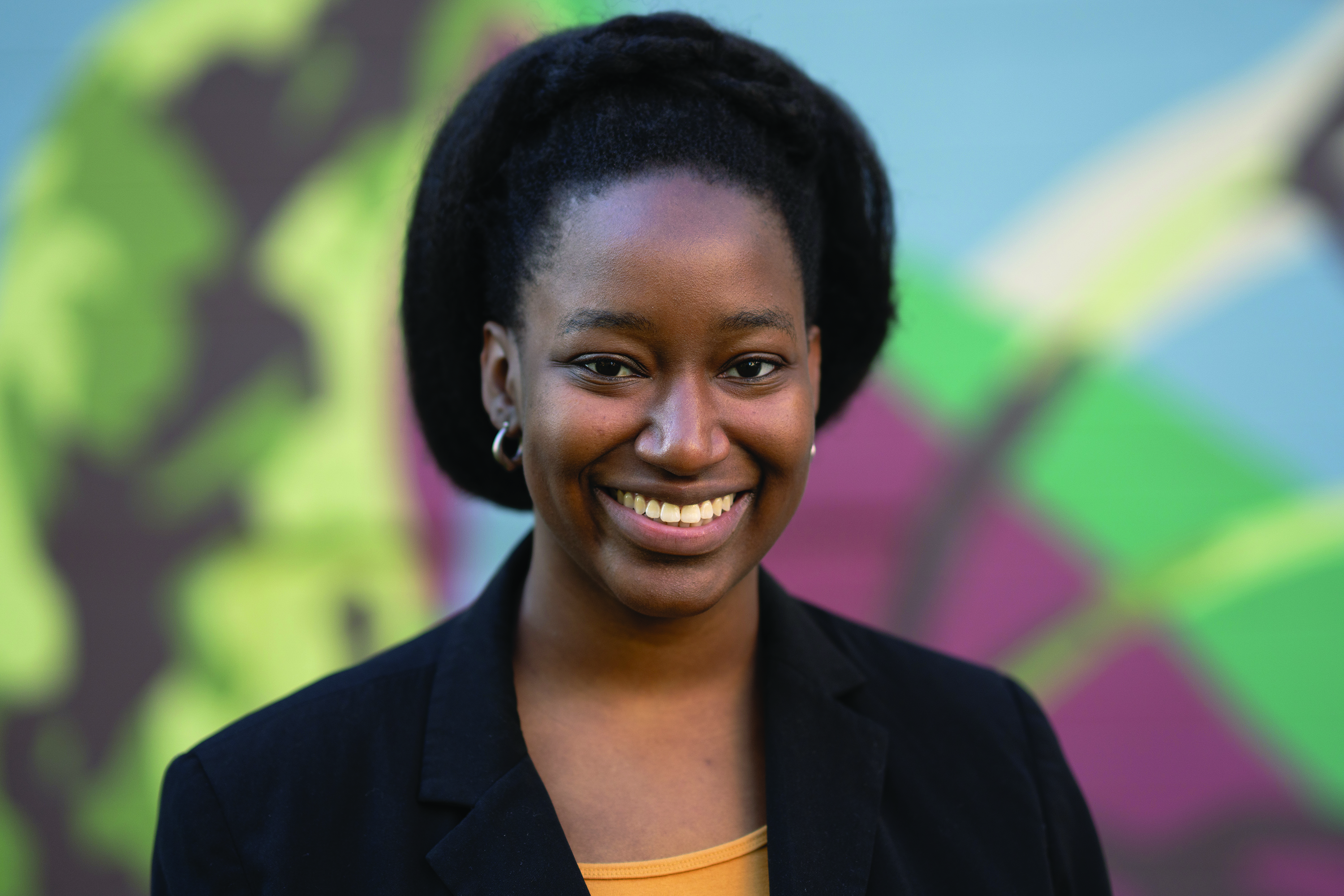Achieving Dreams—Together
Winter
2024
Letter
Achieving Dreams—Together
Rachel Nere, Associate Zone Councilor Representative, SPS Executive Committee 2023–24, and Graduate Student, Georgia Tech
During my childhood on this pale blue dot in space, a passion was ignited within me to understand and advance our knowledge of the cosmos and to communicate science in a way that can be understood by anyone.
I aim to be the first in my family to achieve a doctoral degree and to impact my community as a successful researcher, educator, and mentor. To get to this point, my first year of grad school,
I have persevered through multiple transfers, long commutes, and a seven-year journey to my bachelor’s degree. I paid for the majority of my education on my own terms, eventually gaining acceptance to graduate school and proving to my parents—and perhaps, more importantly, to myself—that I was capable of achieving the dreams I have had since I was six years old.
My drive to succeed has been fueled by a desire to honor my parents’ sacrifices, even though they doubted my ability to achieve my dream, and live up to the values they instilled in me. However, my journey is not just about overcoming the hurdles of a first-generation college experience; it is deeply intertwined with my identity as a Black woman in STEM. This added another layer of complexity and challenge, as I have often had to navigate spaces where no one looked like me.
As of 2020, fewer than 100 Black women had ever earned PhDs in physics in the United States, and only 22 Black women had received PhDs in an astronomy-related field.1 As a Black woman working toward a physics PhD with a focus on astrophysics, and as one who has faced numerous adversities throughout my nonlinear path to education, I find these statistics harrowing. But I have worked to take proactive control of my experiences and encourage fellow underrepresented students in STEM to do the same.
Through my tumultuous college journey, I learned firsthand how crucial community is for nontraditional students, marginalized people, first-generation Americans, and immigrants alike. The first four years of my undergraduate journey were spent at a state institution and a community college where I did not feel at home. During those years, I was actively discouraged from pursuing a career in physics by professors, peers, and even loved ones. As immigrants from a developing country, my parents wanted me to pursue a different kind of career. I could never see myself as a nurse, teacher, or medical doctor, so I persisted with my undying love for physics and astronomy. I continuously pushed against the barriers that were stacked against me time and time again, even when I had to commute five hours a day for school. After four long years, I transferred again, this time to the University of Massachusetts Boston (UMass Boston), which I was fortunate to call my academic home for the last three years of my undergraduate career.
A large part of the community that I found at UMass Boston was through SPS. My former thermodynamics professor and research advisor at the time, Professor Mohamed Amine Gharbi, insisted that I help revive the chapter at school, and so I did. I first became chapter vice president in 2021, then president from 2021 to 2023. SPS became a place of community and safety not only for me, but for other students as well. That was part of why I joined the club—to help make it a place where others could connect, understand each other, empathize with each other, and help each other, regardless of the capacity of their needs. This journey started to flourish as time went on.
That community has since expanded. I met former SPS director Brad Conrad during my time at UMass Boston, which forever transformed my life for the better. He invited me to attend the American Institute of Physics Board Meeting in June 2023, where several other students and I spoke about our experiences. Another impactful experience was attending the 2022 Physics Congress—witnessing the bonds of other SPS chapters inspired me to want to further impact the physics and astronomy community. Through SPS, I was introduced to the scholarship that helped me afford to finish school—I became one of the inaugural recipients of the TEAM-UP Together Scholarship, which is a joint effort between several physics societies, including SPS. These experiences inspired me and showed me that more can be done to support underrepresented students in STEM. I want to be a part of that work.
Last spring I was elected as the SPS associate zone councilor for Zone 1, and this fall I was elected as the associate zone councilor representative to the SPS Executive Committee. I do not take these opportunities for granted and am extremely grateful for them. It is the students, leaders, professors, and those who have come before me who inspire me with their passion to give back, do better, and be more involved in something bigger than myself.
Physics is for everyone, regardless of journey or background. SPS is a place filled with people who hear you, see you, and allow you to cultivate what physics means to you. You matter, and so do your experiences and the path you have taken to get here. You are valued—physicists come in every form, not just one. My position on the SPS Council means so much to me because SPS is bigger than us as individuals. I am grateful to be working with you to make physics a more equitable space by giving back to the community and cultivating a family that includes each person, chapter, and zone in the organization.
References
- See “#BlackInAstro: Black Women in Astronomy and Physics” by Kate Storey-Fisher at astrobites.org/2020/06/25/blackinastro-black-women-in-astronomy-and-physics.

